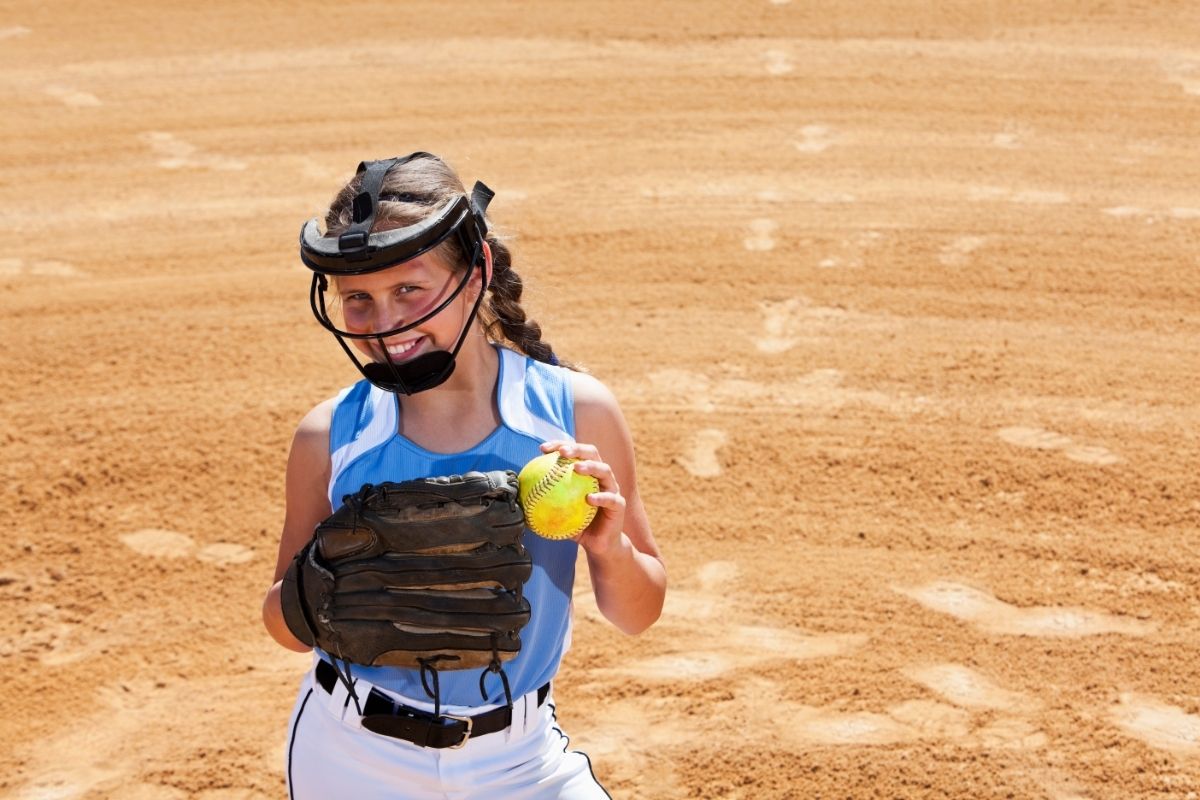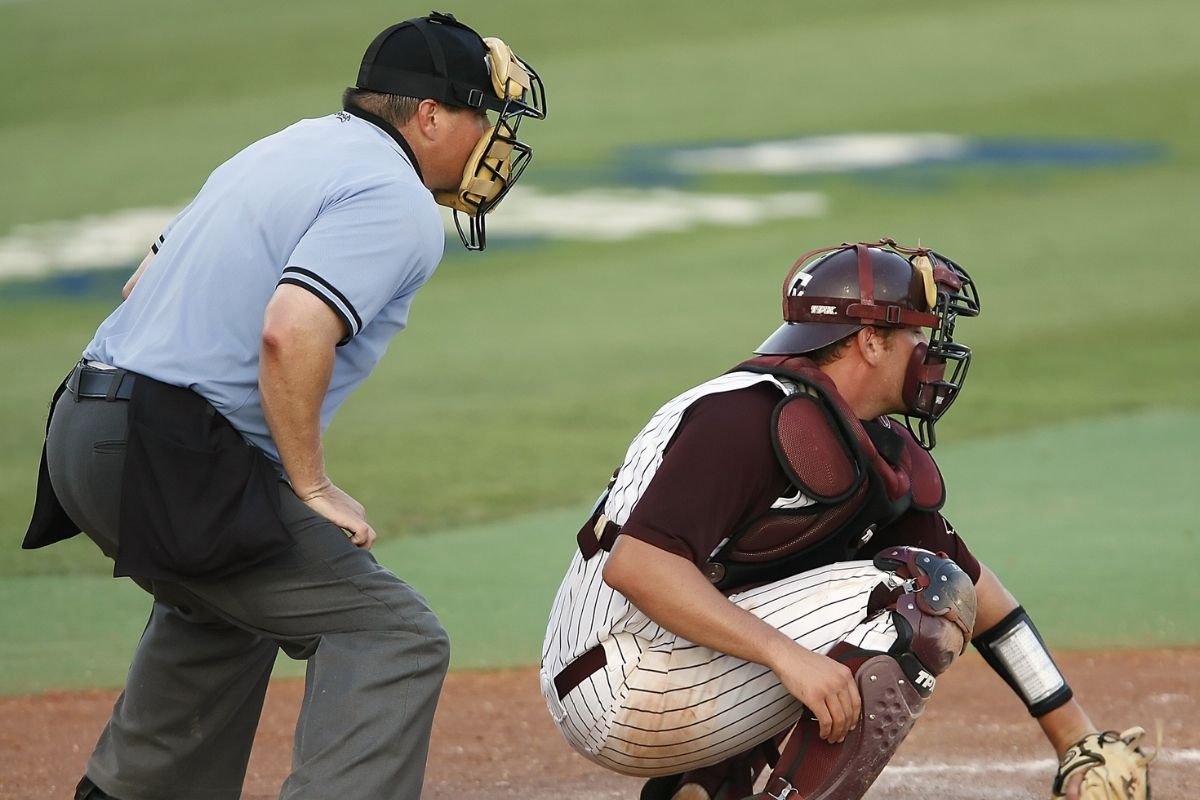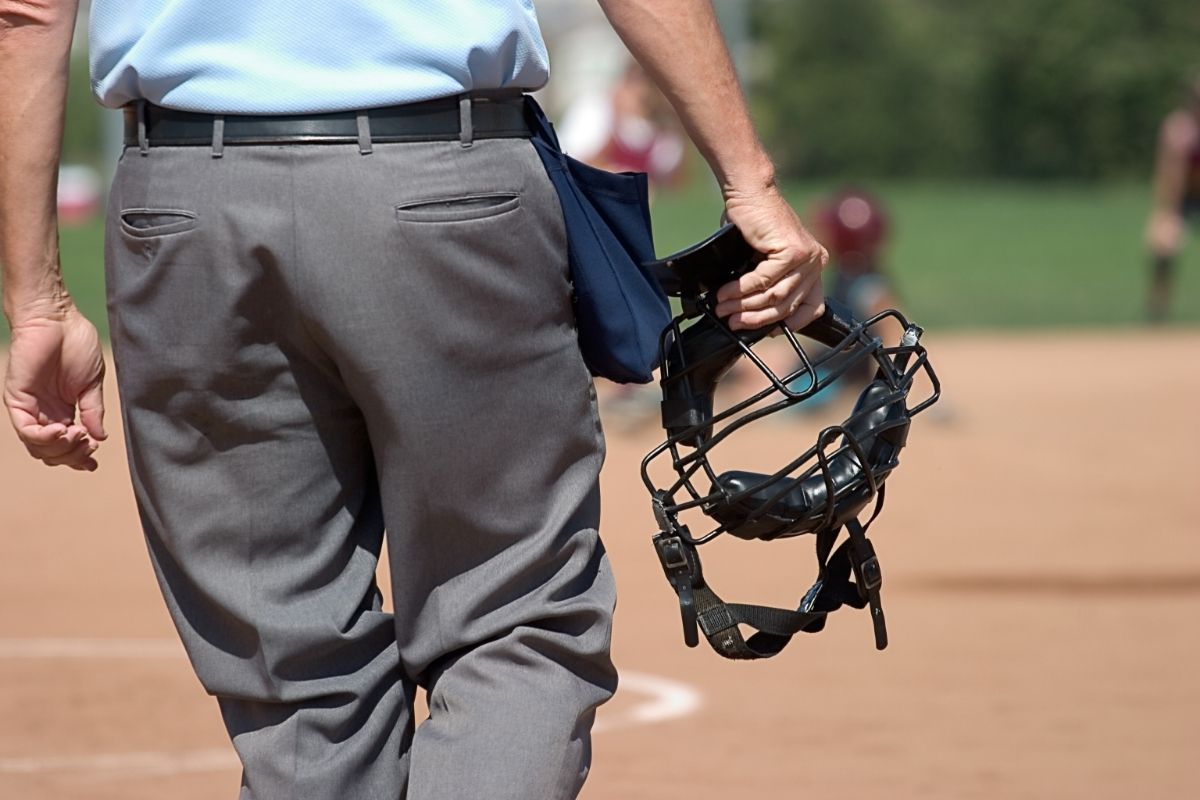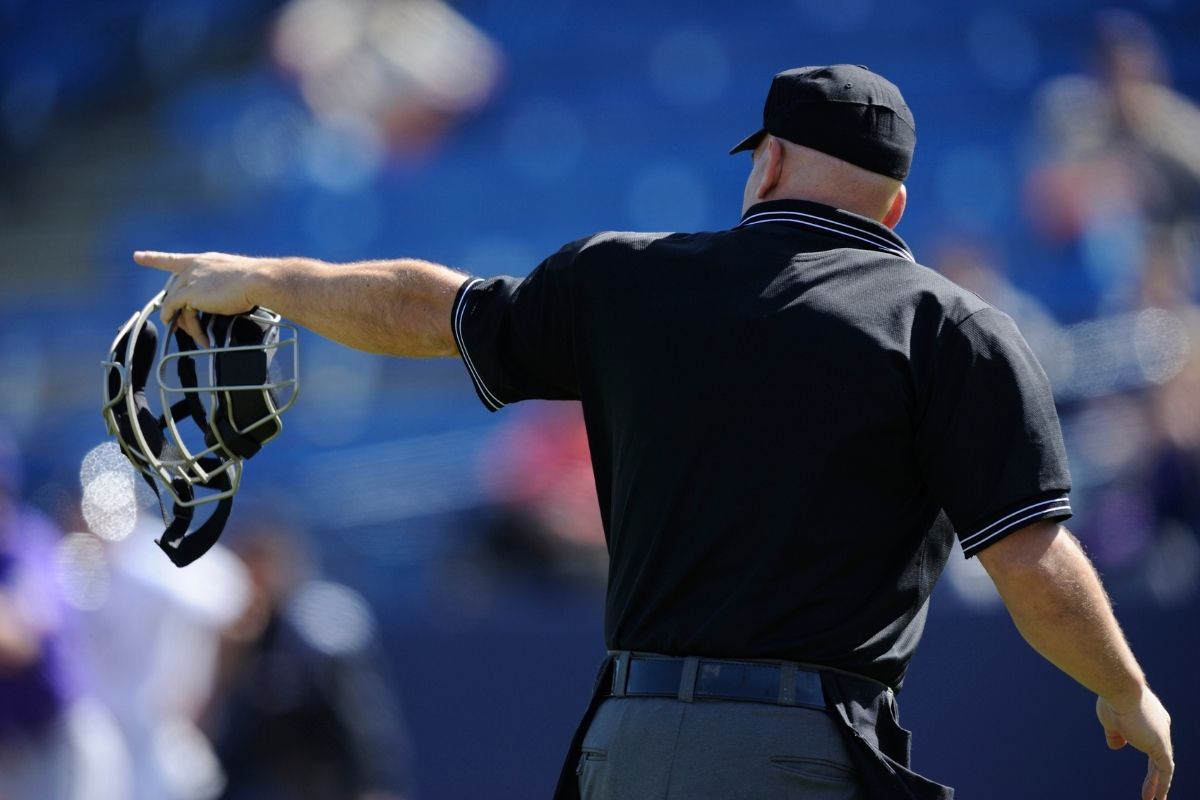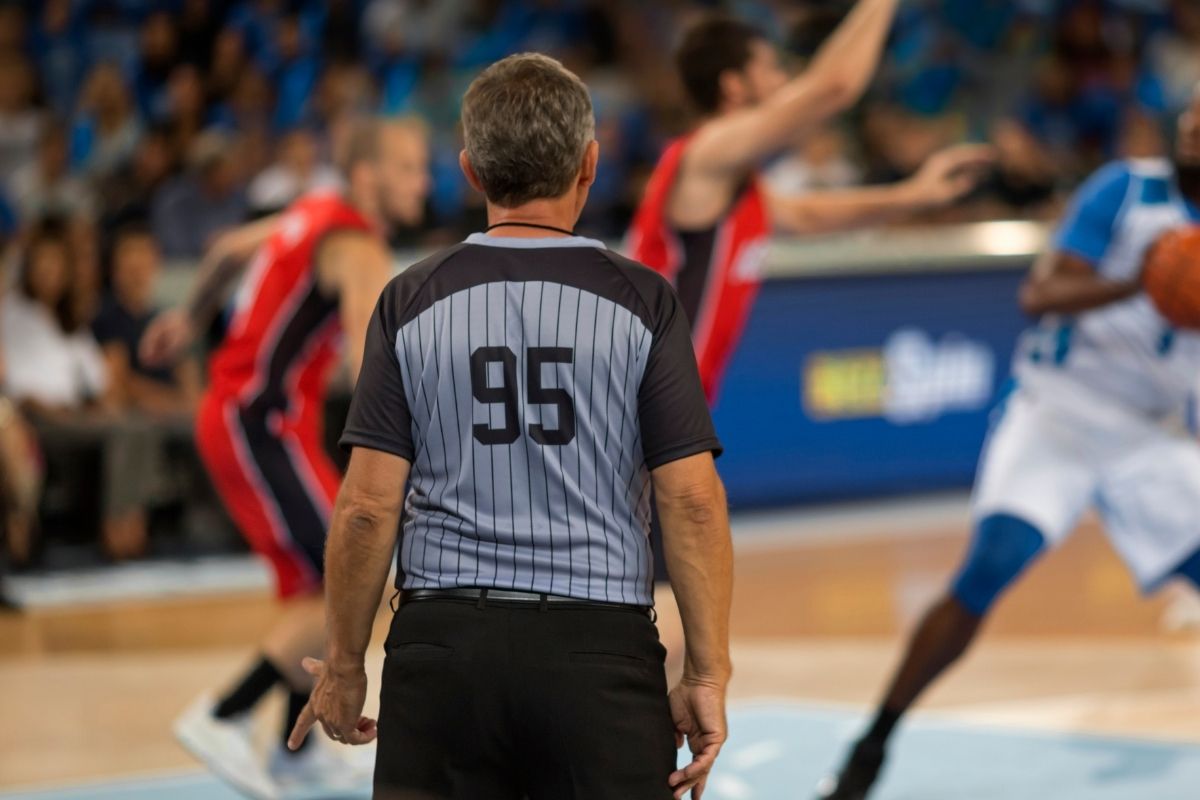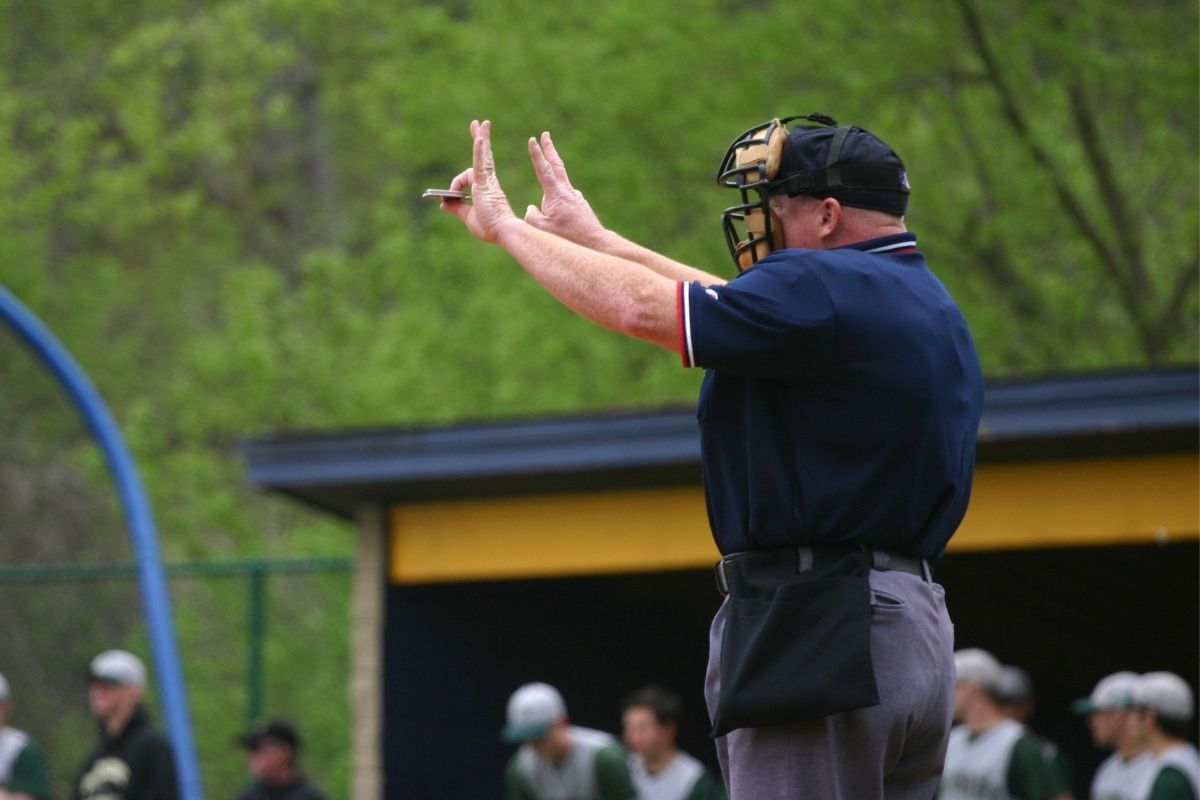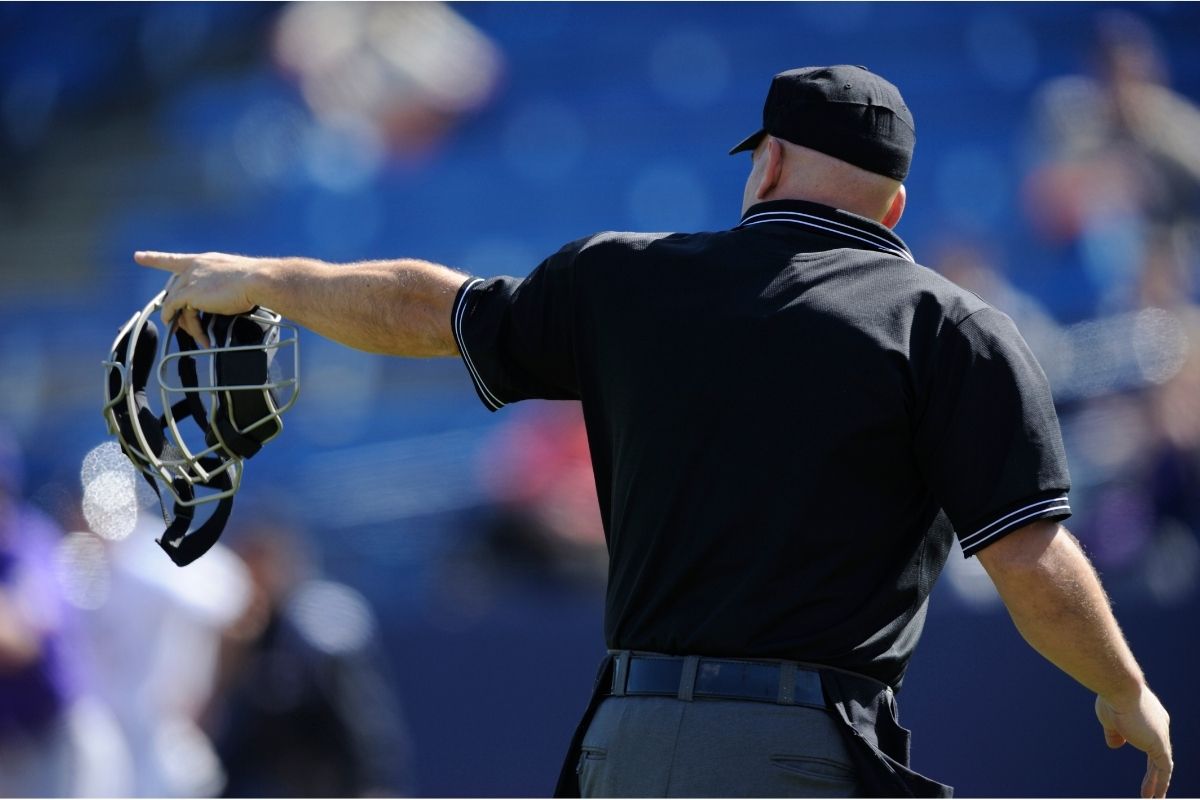Just like on-field officials in other sports, baseball umpires face a lot of criticism for missed calls, or calls that the crowd or players disagree with.
This happens no matter the level of play.
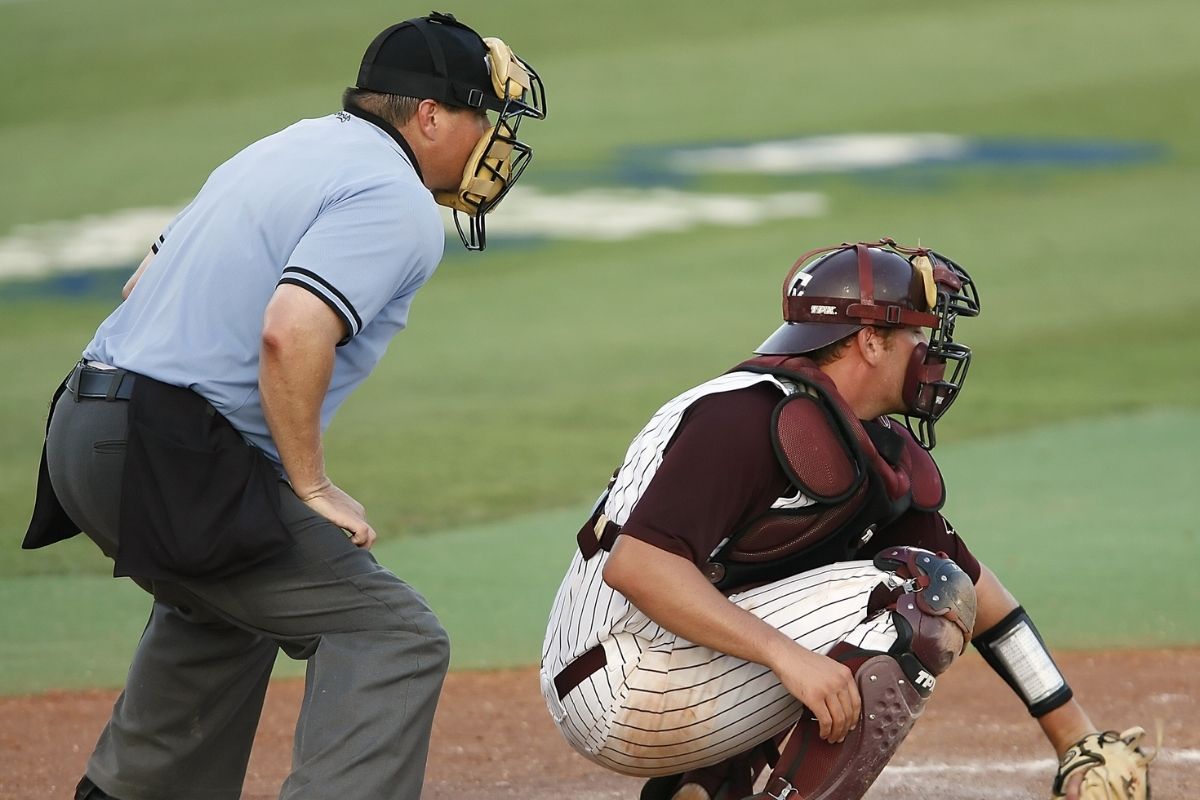
But what a lot of people don’t understand is how hard the job of an umpire actually is. There is a lot more to being an umpire than making a call here and there.
In fact, an umpire has many duties to carry out through the course of the game.
But what exactly are these duties? Let’s take a closer look at the duties an umpire has throughout a baseball game, and the duties they may have before a game even starts!
Basic Baseball Umpire Duties
Duties Before A Game
It may come as a surprise to learn that umpires have responsibilities before a first pitch is thrown. It is down to the umpire to ensure the base lines and batter boxes are marked properly in white chalk.
It is also their job to make sure the home team has provided enough balls to use for the entirety of the game.
Strike Zone
The main responsibility of the home plate umpire is to call strikes and balls.
Baseball isn’t the fastest sport, but still it’s not an easy thing to call balls and strikes since you often have to make these decisions in a split second.
Umpires have different interpretations of the strike zone, but it is crucial that umpires remain consistent in their decisions throughout the game.
Pitches can approach the plate as much as 100 mph and curve in every direction, so making the right call instantly can be very difficult after the pitch crosses the plate.
Outs
Umpires also need to decide whether runners are out or safe at each base, and if someone has batted a fair ball or a foul ball.
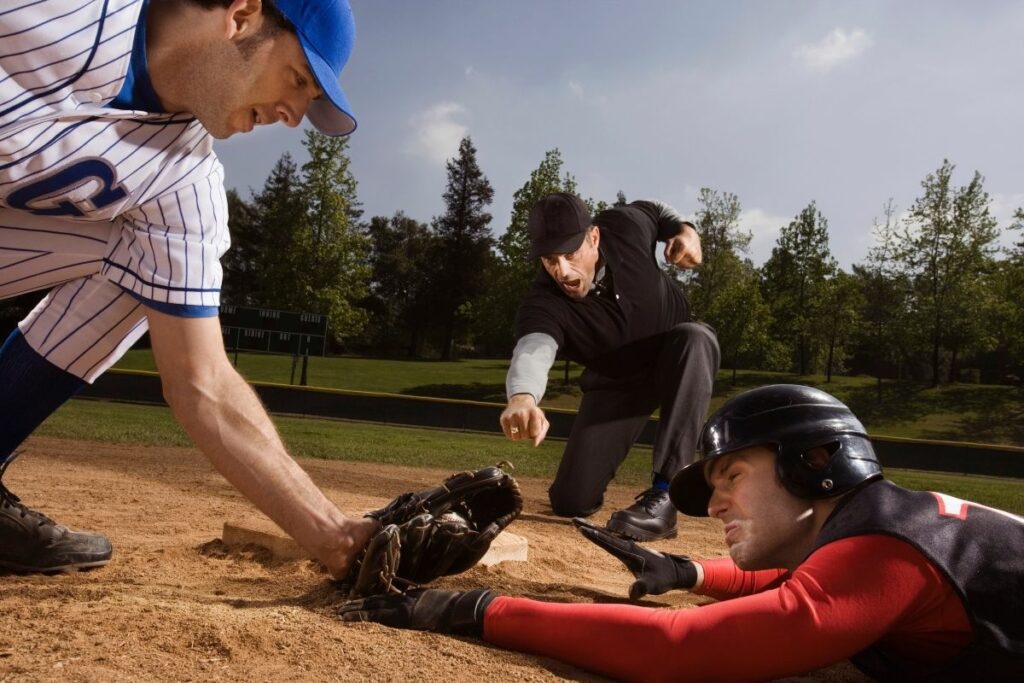
During professional games, there will be umpires on every base to make these calls, but at the more amateur level there is just one field responsible for making the calls for each base.
Lineups
After you’ve accepted the lineup cards from both teams before the game, you will have to keep up with any changes to the line-up and any substitutions that may happen throughout the game.
Keeping Order
At every level umpires will have to keep order between the teams using their best judgement.
Umpires may give warnings to teams (like if a pitcher has thrown at a batter intentionally), and if the situation escalates, they can issue warrants, and remove players and even coaches and managers from the game.
Using Technology
Players, fans, and even umpires were resigned to controversial calls in baseball for years, but these are a thing of the past in major league games.
Umpires in major league games now have access to limited instant replay, so they can reassess any questionable or controversial calls.
Modern technology allows umpires to reverse calls, because even umpires make mistakes!
Umpire In Chief
You may have heard the term ‘Umpire in Chief’ in baseball. In a minor league baseball game there is usually one umpire, and they are known as the ‘Umpire in Chief.
They manage the game and get the final word on any dispute over the rules.
The umpire in chief has meetings before the game with the team managers, the scorekeeper, and their fellow umpires.
An official scorekeeper must be decided before the game.
The umpire in chief refers to them for matters such as current batter count, batting order, runs scored, number of outs, and any other questions relating to the game.
Umpires in chiefs will also have a meeting with the base umpires to decide on how each umpire will cover the field and runners, and who will make a call on fair or foul situations and catch or no-catch situations.
Umpires in chiefs will also meet with the team managers alongside the other umpires ahead of the first pitch.
Introductions will be made, and they will discuss topics related to the game to keep misunderstandings to a minimum.
They will exchange line-up cards, confirm the official scorekeeper, discuss the intended flow of the game, discuss any special field considerations like out-of-play areas, decide on any time limits, and decide how managers will request time and the review of umpire calls.
How To Be A Good Baseball Umpire
Umpires develop techniques over time to make sure the game runs smoothly, and to keep wasted time to a minimum.
Good ways of doing this include enforcing time limits for the pitcher to warm up, encouraging batters to return to the box if they’re moving too slow, and encouraging coaches to put a warm-up catcher on the field between innings if the catcher is still putting their gear on.
Umpires can’t also be afraid to enforce the rules – that’s their job after all!
Players and coaches will often want to talk to them about penalties and possible rule violations, and this normally happens in the heat of the game.
Knowing the rules, applying them correctly and explaining them calmly is something umpires get better at over time.
Just like the players, umpires need training too, and minor league and little league training sessions for umpires are quite common.
Most umpires learn from watching a more experienced umpire do their thing.
But when you’re starting out as an umpire it’s important to know the most common rules like the back of your hand, and learning the more obscure rules will come later.
Backing up and supporting the base umpires is also important, except in cases when you know they’re wrong. It’s important to keep an eye on runner out or safe calls, especially when you have a good angle of the play.
The base umpire will have the final call usually, but you need to be clear and knowledgeable on the call so you can confidently dispute or back up the call.
Final Thoughts
As you can see a baseball umpire has many duties before and after the game, and are crucial to the game running smoothly!
- Can You Play Pickleball on Grass? Tips and Tricks - June 12, 2023
- Do Pickleballs Wear Out? Everything You Need to Know - June 12, 2023
- Can You Play Pickleball on Concrete? A Guide to Playing on Hard Surfaces - June 12, 2023

